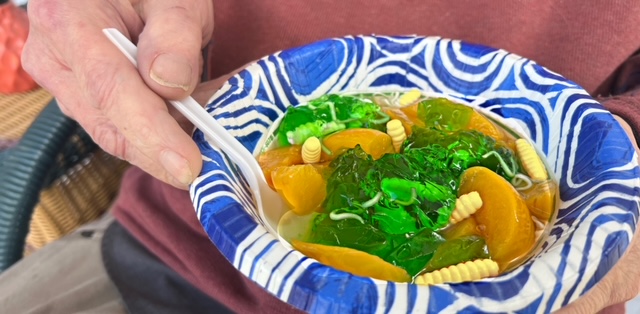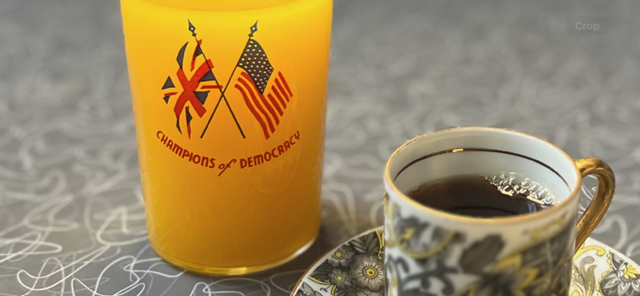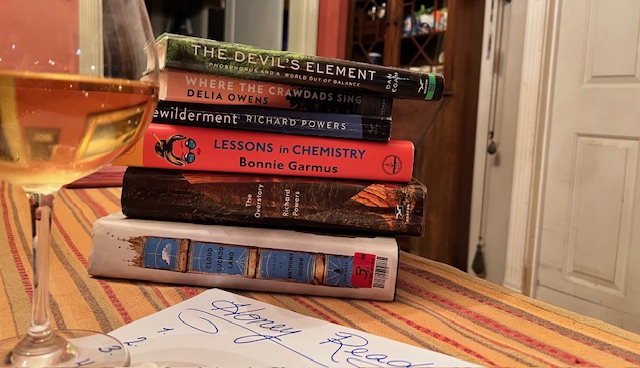In case you haven’t noticed, the days of the fourteen-course tasting menus have gone the routes of the mink stoles and platform shoes. Sanity, some would argue, has been restored to the culinary arts.
The French, Italian and Spanish cuisines have been exhausted by foodies with black American Express cards. The $1,200 designed dining experiences—wine not included—are passe. The last person to have had such an experience had to suffer the tuxedoed waiter who offered suggestions (demands, actually) of the proper way to eat a single olive from a spoon carved out of an Italian cheese with actual worms coursing through its semi-soft structure.
The cheese, called casu martzu, is a traditional Sardinian sheep-milk cheese that contains live insect larvae (maggots). This came as no surprise to Robert F. Kennedy, Jr., whose doctors just last week removed enough of the anti-vaccine man’s brain to host a quiet cocktail party for people with a penchant for innards or other disgusting foods.
We’re in the third step of the three-step visits through cuisines. In most cases where food is considered something more than mere fuel (Germany, England, Ireland and Switzerland don’t count) we dined on a simple spaghetti, graduated to handmade spaghetti with a sauce made from canary livers, and returned home to simple spaghetti.
For the French it had everything to do with foie gras; the Spaniards, not to be outdone, focused on any foodstuff that would fit on a plate the size of a silver dollar.
We’ve sorely neglected one of the world’s great cuisines, that belonging to the American South. Earthy, wholesome and challenging, Southern food is as full of attitude as an Alabama Trump rally: not very nourishing but somehow short of putrid.
Joe’s Vittles Shack, housed in a clapboard—you guessed it—shack on the side of a blue highway near Derriere, Mississippi, has just debuted its first tasting menu. The chef/owner, whose name is not Joe, is hoping to attract food writers from the North, excluding New York, whose food writers just make fun of stuff, to introduce the rest of the country to a cuisine that is widely considered almost palatable.
That, according to Bubba, will change when his patrons have their first of four tastes of okra, a vegetable whose name is frequently found in crossword puzzles.
Boiled okra comes first. Its delicate slime oozes from the pod and falls into a dressing of Thousand Island dressing, laced with siracha and mushroom powder.
Any tasting menu worth its salt offers a palate-cleansing refresher before moving on to the next entree. Joe’s is no different. Each of those courses is a congealed salad, whose varied flavors best erase from both tongue and memory the taste of the course itself.
The first happens to be raspberry.
The second course of okra is prepared in the too-popular method of sous vide. This course is easily prepared at home by purchasing a bag of frozen okra and boiling said bag in water. Once upon a time this was called “Boil-In-the-Bag.” This steaming mass can be plated atop a spread of horseradish and Saltine crackers.
Peach.
A third course of broiled okra also preserves the desired slime texture while capturing the mushy texture of over-cooked cauliflower.
Anise.
The fourth and final presentation of okra is made by deep-frying the pods and serving them with Heinz’s Cocktail Sauce.
Watermelon.
A favorite Southern lunch is a tomato sandwich made of white bread (crusts left on), mayonnaise and tomatoes. For the most adventurous eaters, the sliced tomatoes are salted.
Pecan.
No Southern meal would be complete without fried chicken, biscuits, mac ‘n’ cheese, and corn fried in bacon grease with garlic and onion. Thus, our latest menu additions number five through eight.
Chocolate, blackberry, avocado and peanut brittle will both cleanse and confuse the palate.
A root vegetable seems in order. Say the phrase “root vegetables” and most people think of potatoes, carrots, onions, and beets. Few, if any, would come up with salsify. There’s a reason for that. No self-respecting Yankee would give up the common root vegetables for one that tastes like oysters and makes okra seem a delicacy.
Nutmeg.
Shrimp and grits is a popular dish in the Deep South’s low country. So is crawfish étouffée, the closest your average redneck will ever get to lobster. At this point, it is reasonable to ask what “low country” means and where might one find it.
SEROquel.
Ham and collard greens are a typical breakfast for those who might have had three too many servings of some kind of backwoods distilled hootch. Red-Eye Gravy completes the cure.
Red clay.
An all-time, every-place-in-the-South favorite is red beans and rice. A Monday night staple in New Orleans, its unique richness and spiciness makes for a perfect dinner. Here, the tasting calls for one tablespoon atop a Ritz cracker.
Aluminum.
And finally, to complete our Southern tasting menu, we offer peach cobbler. You don’t even have to be from the south to love this fruity, crumbly dessert, though it helps.
For the record, congealed salad is Jell-O.
Beverages: 7&7, cold beer, iced sweet tea, RC cola.
Photo composite by Courtney A. Liska
Red Beans and Rice
1 (1 lb.) package red kidney beans
1 green bell pepper
1 medium onion
4 celery ribs
1 tsp. salt
1⁄4 tsp. pepper
1 tsp. dried thyme
1 tsp. seasoned salt
1 1⁄2-2 Tbs. Creole seasoning or Cajun seasoning
3 garlic cloves
2-3 Tbs. tomato paste
8 cups water
1 lb. smoked sausage (I have used chorizo which is good, but andouille is best)
cooked rice (at least 3 cups)
Soak kidney beans overnight or rinse beans, add to pot, cover with 8 cups water and bring to boil. Boil for 2 minutes, turn off heat and let sit, covered for one hour.
Pour out water and add 8 cups fresh water.
Chop onion, bell pepper, celery and garlic. Add to simmering beans.
Add salt, pepper, thyme, seasoned salt, and Creole or Cajun seasoning.
Cover and bring to boil. Reduce heat to medium low and cook for 2 1/2 hours, stirring occasionally. When you stir, be sure to mash the beans against the sides of the pot. This creates a creamier texture.
Slice the sausage into 1/4 inch pieces and add to beans. Cook for an additional 30 minutes.
Serve Red Beans over hot, steaming rice.









